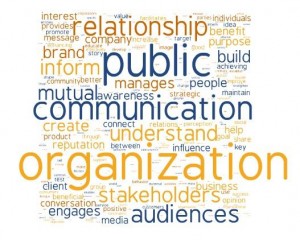Say What? PR Slang – Defined
As PR professionals, we often find ourselves in interesting conversations trying to explain what we do for a living. Truth be told, the popularity of social media and its integration into the PR and marketing mix has made it a little easier to help our family and friends “get it,” but there are still a lot of curious looks when you answer the question, “So, what is PR and what do you do as a PR professional, anyway?”
To complicate matters, we use a lot of PR lingo that makes no sense to those outside of marketing. Some of our favorite PR slang includes:
Pubs – publications, as in “we need to get media coverage in 100 pubs”
Hits – media coverage
Opp – opportunity, as in an opportunity to get media coverage
Journo – a reporter (journalist)
Pitch – note to inform/gauge interest
Running/ran – article appeared
Traction – interest/coverage
Out of the box – think beyond the obvious
Open the kimono – reveal more details
Prezo – a PowerPoint presentation
Release – a news announcement (as opposed to a product release)
Launch – the public marketing announcement of a G/A product (G/A = generally available)
B-roll – “highlights” video of something we want to promote (company, person, event), often used to show broadcast outlets the potential for a story and/or provide them with footage for the story
Ed Cals – editorial calendars (predetermined story topics by media outlets)
Boilerplate – short description of a company, most often used at the end of a press release
Evergreen – story/pitch angle that won’t fade over time, could be pitched/published at any time (as opposed to news that is only relevant during a certain period of time)
In-house – a “corporate” job where one conducts PR inside a business, as opposed to an agency job where one services several clients at once
Flack – although defined as “a publicist or promoter,” it is also a derogatory reference – often used by journalists – to describe a bad PR executive
Hack – PR’s response to “flack,” often used to describe a poor journalist or reporting job
What slang terms do you use in your profession that others might not understand without explanation? What’d we miss on the PR front? We are pretty sure our former colleague Terry Frechette will have some to add!


